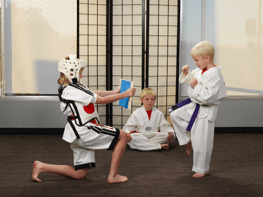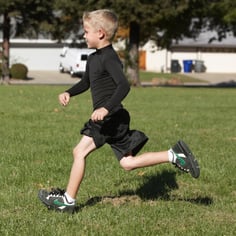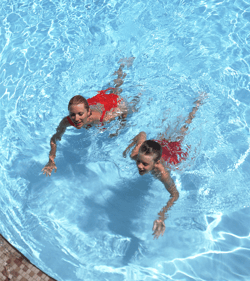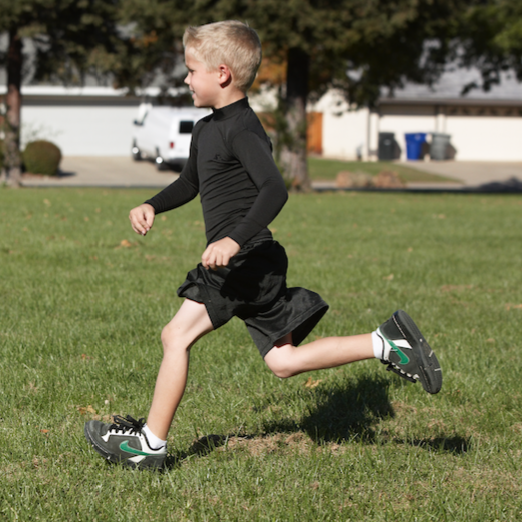Best Sports for Autistic Children
5 Tips for Helping Your Child Succeed in Sports
It is no secret that sports are a big part of most people’s lives. More than 100 million people in the United States alone tune in to watch the Super Bowl every year. However, being a sports fan and playing a sport are two completely different things–especially in the eyes of a parent. You probably know enrolling your child in a sport has tremendous benefits such as endurance, strength, and general fitness. But as you might have guessed, for many autistic children, finding the appropriate sport can be challenging.
Most parents can’t deny that they want to see their child score the winning goal, make the buzzer-beater basket, or hit the walk-off home run. However, these traditional, large-team sports such as soccer, basketball, baseball, and football might not be the best choices for autistic children. In all of these sports, the demand for social interaction, calculating movement, and managing noise are almost certainly too high. For example, football and basketball players converse with each other during the game by verbally saying things like, “Hit me deep,” or “I’m open.” At times, these same messages are communicated nonverbally through hand gestures, eye glances, etc. Some young children on traditional sports teams seem to pick up on these unspoken cues and understand what they’re supposed to be doing. However, these elusive communication skills can be challenging for an individual diagnosed as autistic.
 There are many ways for autistic children to participate successfully in sports. Each child is unique in his or her diagnosis. These characteristics shape their distinctive interests, strengths, and challenges–so parents are encouraged to explore these traits with their children to really understand what their child can excel in. For example, perhaps your child has coordination or attention issues that you worry may interfere, or maybe you are worried that your child’s social shortfalls will get in the way of having a positive experience with sports. While traditional team sports may not be appropriate for your child, there are other alternatives that can keep your child active and involved.
There are many ways for autistic children to participate successfully in sports. Each child is unique in his or her diagnosis. These characteristics shape their distinctive interests, strengths, and challenges–so parents are encouraged to explore these traits with their children to really understand what their child can excel in. For example, perhaps your child has coordination or attention issues that you worry may interfere, or maybe you are worried that your child’s social shortfalls will get in the way of having a positive experience with sports. While traditional team sports may not be appropriate for your child, there are other alternatives that can keep your child active and involved.
If you want your child to participate in group sports but feel that traditional sports might not be the best idea, it may be a good idea to start with sports activities where each member of the team contributes independently. Some examples are bowling, swimming, tennis, and gymnastics. Track, golf, and karate are also individual sports where you are part of a group. These sports allow your child to be part of a team but alleviate the group dynamics of being fully dependent on each other every second of the game. In addition, these sports give children an avenue to stay healthy and teach them the value of practice makes perfect.
Since choosing a great extracurricular activity can sometimes be an overwhelming task, I have put together “The 5 C’s” that can help your child with autism succeed in a sports program.
 Communication
Communication
It is important that your child’s interest, abilities, and strengths are considered when choosing the sport. As a parent, one can only want what is best for their child. A suggestion would be to try to communicate clearly with your child by setting realistic expectations to try and really understand their perspective. Choosing a sport that will allow your child to successfully participate and excel in might help alleviate the anxiety of trying something new and promote independence and self-confidence. For example, does your child love animals? Maybe horseback riding would be an appropriate choice. Transparency in getting your child to communicate his or her desires is a great start to finding the right sport for your child.
Consideration
Does your child have sensory sensitivity? If your child is sensitive to loud noises, then a sport with irregular whistling, such as volleyball, might not be ideal. If your child has an aversion to fresh cut grass then baseball might not be the best choice. It is important to consider the environment of each sport for the purpose of avoiding extra challenges that might prevent your child from successfully participating and enjoying the activity. After all, playing a sport should be a fun experience–not a stressful one. If you are unsure, try going with your child to watch the sport before committing.
Cooperation
The ability to cooperate with others is key to a child’s success. Parents should make a concerted effort to demonstrate this cooperation by partnering with coaches or instructors to get the best possible experience for their child. At first, your child might not be able to do everything the other children can do. Working on too many points of detail at once, or spending too much time on a task, may be overwhelming and cause frustration. Talk to the coaches or instructors to see if skills and activities can broken down into smaller, more manageable sections, so your child can feel successful each time. If it seems your child is frustrated or fatigued, (if possible) have the coach allow for a short break and go with the child’s pace. In the early stages of playing a sport, it is important to foster your child’s love for the game.
Connection
 If you want to go fast then go alone, but if you want to go far then go together. This African Proverb is a great example of how connecting with other parents who are experiencing the same difficulties can be a great resource. Asking them about their experiences is a nice way to connect and have a dialogue for pressing questions that you may have for the purpose of improving your child’s chances of succeeding in sports.
If you want to go fast then go alone, but if you want to go far then go together. This African Proverb is a great example of how connecting with other parents who are experiencing the same difficulties can be a great resource. Asking them about their experiences is a nice way to connect and have a dialogue for pressing questions that you may have for the purpose of improving your child’s chances of succeeding in sports.
Compassion
If initially it seems that your child has been making little progress, it is important to be positive and provide encouragement. Going the extra mile to help your child whenever possible and being compassionate is a must. Whether that is spending time at home to practice their skill or just being there for your child with relentless support will really make a difference.
In short, sports matter for a lot of people. Autistic children should not be robbed of the happiness and enjoyment that sports can bring in life.
Suggested Sports: Swimming, Bowling, Horseback Riding, Track and Field, Biking, Martial Arts, Gymnastics. See also: information about adventure ability services.
I would love to hear about your experiences with great sports for autistic children. Please share your experience below in our comments section. We would love to hear from you!




